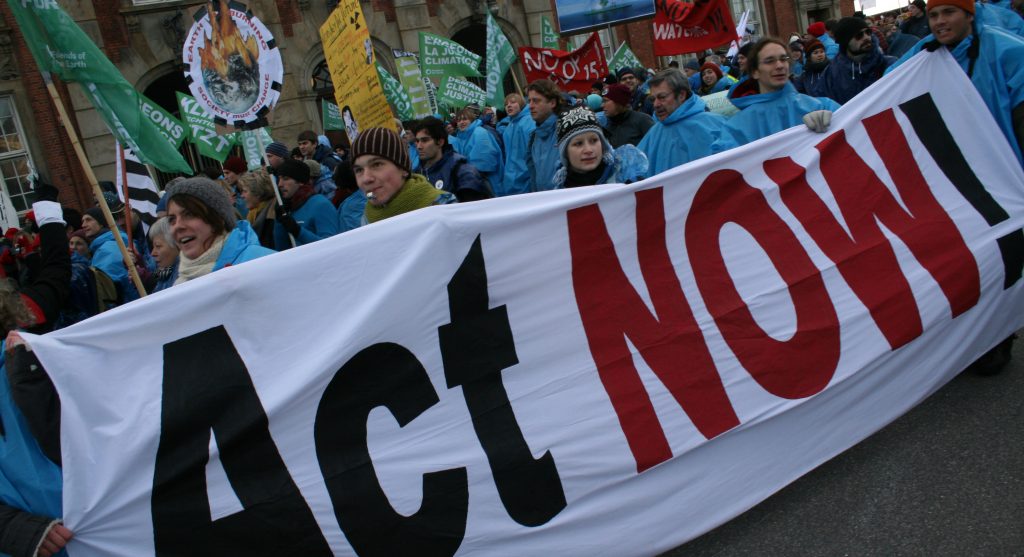Brussels, 14 March 2008 – European leaders have missed another opportunity to take the tough action necessary to avert dangerous climate change, warned Friends of the Earth Europe today as the Spring Summit of the European Council closed in Brussels.
European heads of governments called for an agreement on Europe’s energy package by the end of 2008 – a move welcomed by the green campaign group which says it is crucial for the legislation to be adopted before the UN climate negotiations in 2009. But the package is not ambitious enough to prevent the worst effects of climate change, says Friends of the Earth Europe. It is calling for the European Union to unconditionally up its target for reducing emissions from a 20 per cent cut to a cut of at least 30 per cent within Europe by 2020, and on national and European level governments to ensure legally binding year on year cuts to make sure the targets are actually met [1].
“The EU must prove that it is willing to do its fair share to tackle climate change before crucial negotiations take place in Copenhagen next year,” said Sonja Meister, climate and energy campaigner for Friends of the Earth Europe. “European leaders have today missed a historic opportunity to support an unconditional target of at least 30 per cent reductions in emissions by 2020 and lead the world in the fight against climate change.”
Friends of the Earth believes that the EU’s proposals for reducing emissions by 2020 do not give enough guarantee that targets will actually be met. The effort-sharing decision which aims to reduce emissions not covered by the EU Emission Trading Scheme (ETS) is especially weak on enforcement and compliance, it says. The group’s Big Ask campaign, launched last month in Brussels and 17 European countries, calls on national governments and the EU to introduce legally binding annual cuts in emissions which Friends of the Earth believes is the only way to keep emissions reductions on track.
“Only enforceable short term targets will pressure politicians all across the EU to actually deliver emissions cuts, that’s why the EU needs to cut its emissions year by year. But without swift agreement on an enforcement mechanism to ensure all Member States meet their targets Europe is in real danger of failing to meet its international obligations,” Sonja Meister said.
Friends of the Earth Europe welcomed the European Council’s support for the 20 per cent renewables target but criticised its failure to make the 20 per cent energy efficiency target binding. Friends of the Earth Europe accused the European Union of neglecting energy efficiency – the biggest potential source of emission reductions in Europe. This disregard is even harder to understand as the EU’s own data has shown that the 20 per cent energy efficiency target could be reached at zero net costs. [2]
Friends of the Earth Europe remains highly critical of the support given to agrofuels. EU leaders should have dropped the proposed 10 per cent mandatory target since scientific evidence and international concern is growing that agrofuels are a false solution to climate change. [3]
***
NOTES:
[1] Friends of the Earth’s summary of its demands for a better compliance structure for the European emission reduction policies until 2020 can be found at: www.thebigask.eu/background/summary-of-the-compliance-study
On 27th February Friends of the Earth Europe launched the Big Ask campaign – a Europe-wide climate campaign in which Friends of the Earth groups in 17 countries are calling on governments to introduce legally binding annual emission cuts. Together they are asking the European Union to force all member states to cut their emissions year-on-year. For more information visit www.thebigask.eu
[2] “Realising the 20 per cent potential 2020, equivalent to some 390 Mtoe (million tons of oil equivalent), will result in large energy and environmental benefits. CO2 emissions should be reduced by 780 Mt CO2 with respect to the baseline scenario, more than twice the EU reductions needed under the Kyoto Protocol by 2012. Additional investment expenditure in more efficient and innovative technologies will be more than compensated by the more than 100 billion Euros annual fuel savings.” (Energy Efficiency Action Plan, p.3, http://ec.europa.eu/energy/action_plan_energy_efficiency/index_en.htm)
[3] The regulation of agrofuels within the proposed Renewable Energy Directive is particularly weak and will not provide any guarantee of sustainability. Knock-on effects of increasing agrofuel production such as rising food prices and indirect deforestation will not be covered, nor will the many social and human rights issues. Biomass can be used more efficiently in electricity and heat production than as a transport fuel.






